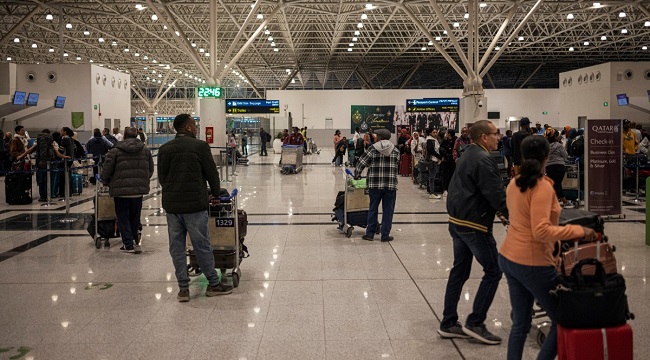The Federal Government will struggle to attract the investment it needs to get its refineries working unless it scraps a fuel subsidy that keeps domestic gasoline prices artificially low, a government commissioned report seen by Reuters on Wednesday said.
The Minister of Petroleum Resources, Diezani Alison-Madueke ordered the report earlier this year in a bid to find solutions to fix Nigeria’s three refineries, which operate at only 20 percent capacity.
Despite being among the world’s top 10 crude oil exporters, the country imports 80 percent of the fuel it needs, using a state subsidy scheme that loses billions of dollars to graft.
The unpublished report leaked to Reuters said current plans to repair dilapidated refineries will most likely fail, because the government will struggle to mobilise funds and vested interests will try to thwart its efforts.
It proposes that the Federal government privatise its refineries, as it is doing with its also moribund power sector, but warned that getting investment will be a tall order while motor fuel prices remain controlled.
“The regulated pricing policy of the Federal Government for petroleum products is the most widely adduced single reason by prospective investors for the lack of investment in new refineries in Nigeria in recent years,” the report said.
It was presented to President Goodluck Jonathan earlier this month but never published. President Jonathan attempted to remove the popular fuel import subsidy in January, but a week of strikes and protests forced him to partially reinstate them.
Many Nigerians see cheap fuel as the only benefit they get from living in an oil rich state.
The report was among a raft of committees set up in the wake of January’s protests. They include a probe into oil and gas production leaked to Reuters last month that showed Nigeria lost billions of dollars in cut price deals with oil majors.
The latest one said Nigerian refineries were the worst in Africa at using their capacity, which is officially 445,000 barrels per day. Ms Alison-Madueke said in October that Nigeria would spend $1.6 billion on turnaround maintenance to get the refineries operating at 90 percent capacity by 2014.
“Laudable as the (plans) may be, they are not likely to deliver the necessary solution,” the report said, adding it was doubtful the government would be able to raise that money.
“In the event that the work gets going, it will be very difficult to steer it clear of obstructive political and bureaucratic influences,” it said.
Analysts say previous attempts to get refineries going in Africa’s top energy producer have been held back by vested interests such as fuel importers profiting from the status quo.
Several contracts worth hundreds of millions of dollars have been given to companies doing maintenance on Nigeria’s refineries over the last 15 years but with little impact on output.
“They have not operated as performance-oriented businesses and are plagued with severe plant integrity issues,” the report said. A parliamentary probe in April found that graft in the fuel subsidy scheme cost Nigeria $6.8 billion in three years.
The report said in order for the refineries to work government should sell at least 51 percent of its share in the operations to competent private partners, which it said could restore them to 90 percent capacity by 2016.
It also said the government must “rise up to its responsibility” to protect pipelines from rampant oil thieves, which by some estimates drain a fifth of its output.




